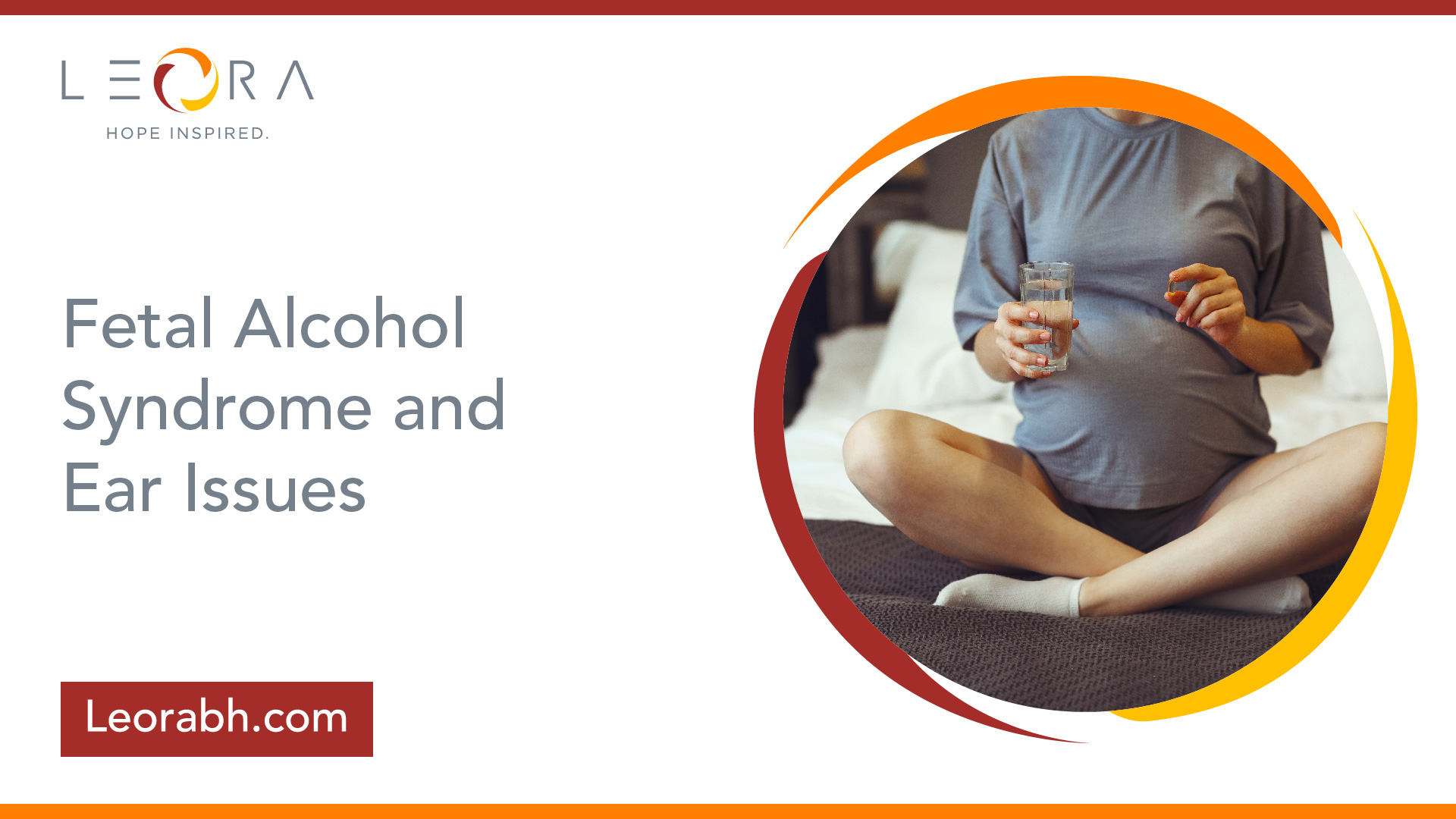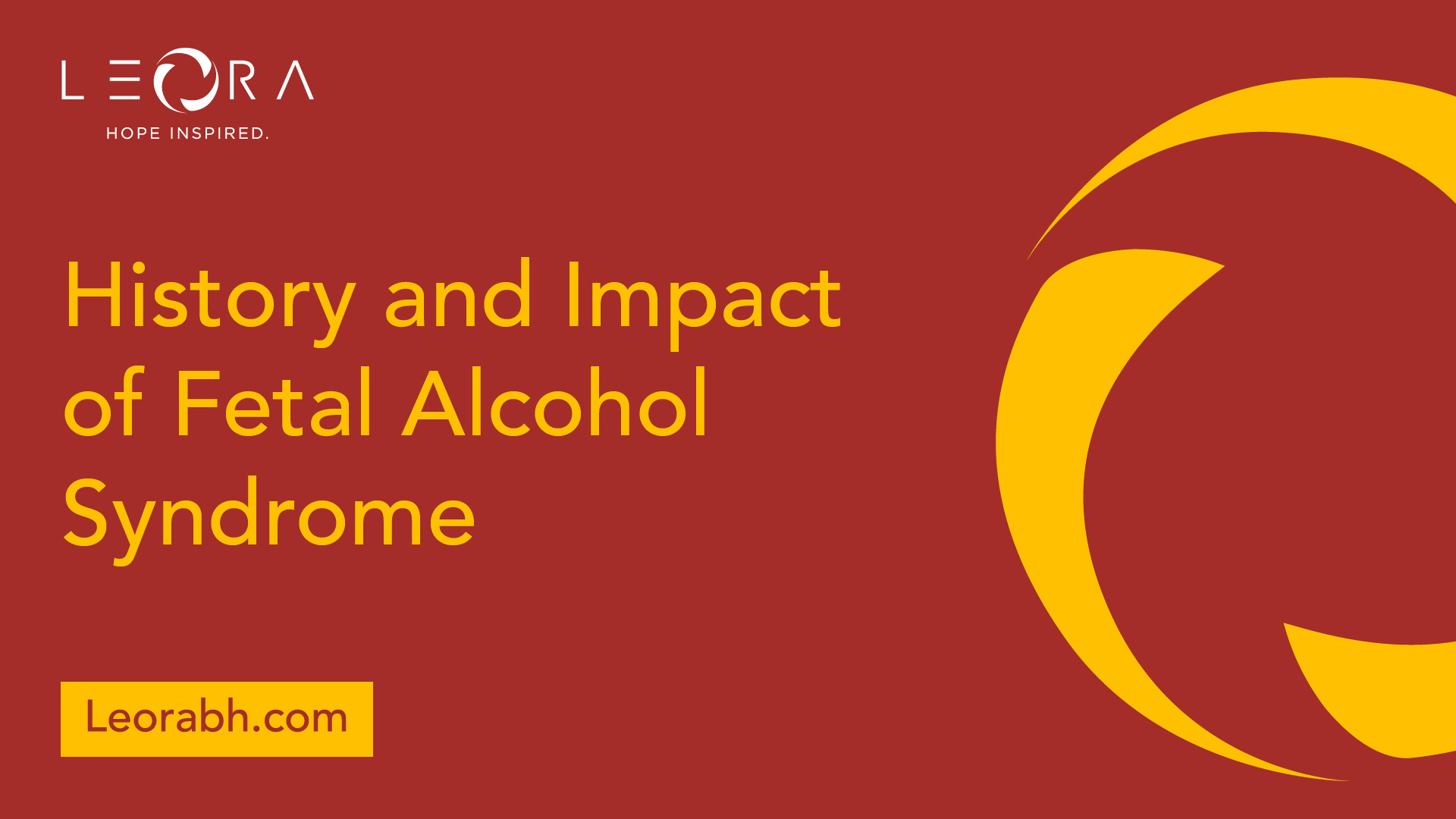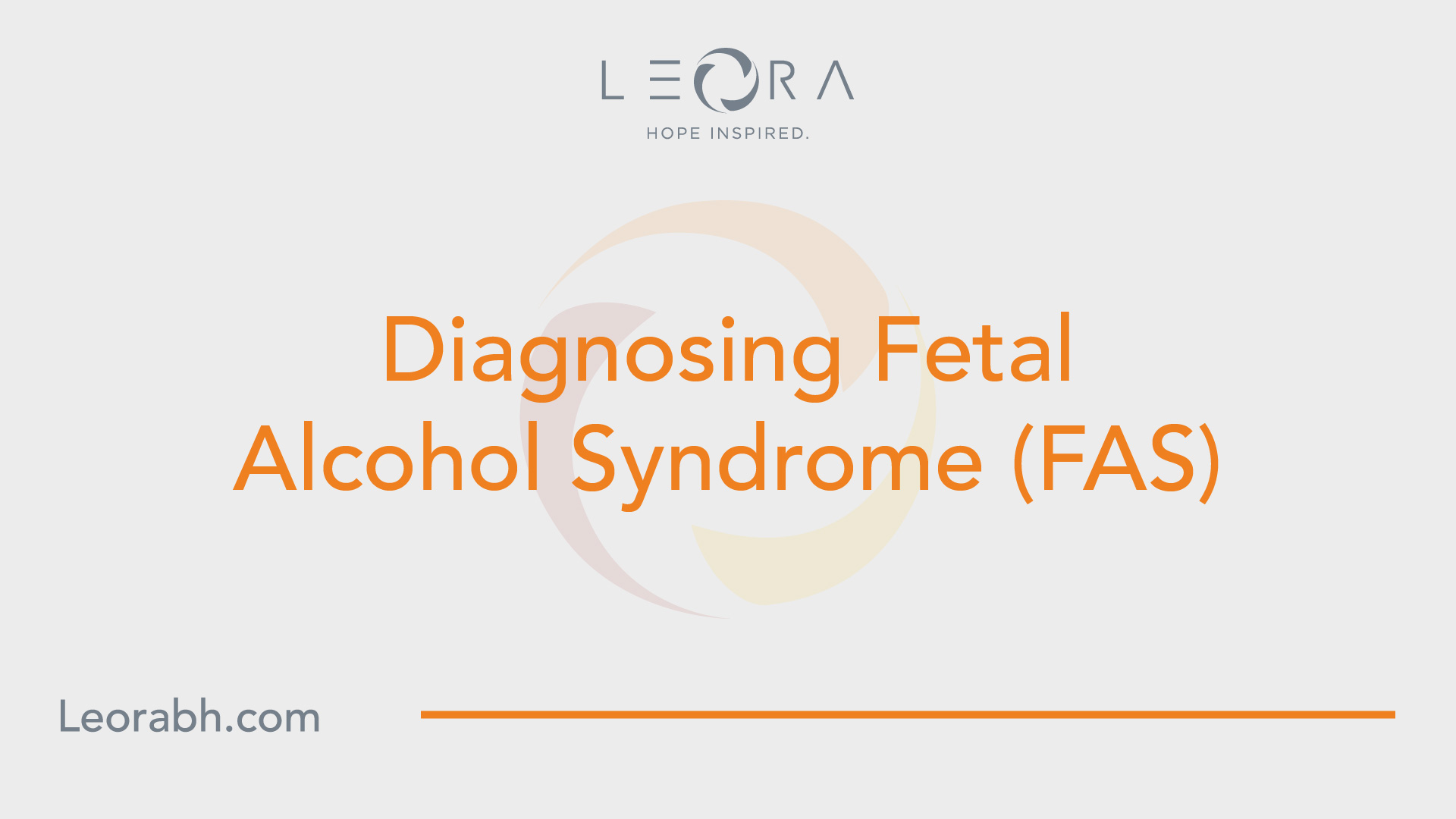Fetal Alcohol Syndrome and Ear Issues
Discover the link between fetal alcohol syndrome and ear issues. Understand the impact and find support.
Understanding Fetal Alcohol Spectrum Disorders (FASD)
When it comes to understanding Fetal Alcohol Spectrum Disorders (FASD), it is essential to recognize the implications of alcohol exposure during pregnancy. FASD encompasses a range of conditions that can affect children whose mothers consumed alcohol during pregnancy. The symptoms can vary widely in severity, encompassing physical, behavioral, as well as learning and cognitive issues.

Fetal Alcohol Syndrome (FAS) Symptoms
One of the conditions within the spectrum of FASD is Fetal Alcohol Syndrome (FAS), characterized by distinct symptoms that can manifest in affected children. These symptoms may include:
- Facial abnormalities, such as a smooth ridge between the nose and upper lip
- Growth deficiencies and low body weight
- Central nervous system problems leading to intellectual disabilities or behavioral issues
The presence and severity of these symptoms can vary among individuals impacted by FAS, emphasizing the importance of early detection and intervention.
Impact of Alcohol Exposure during Pregnancy
The impact of alcohol exposure during pregnancy can have profound and lasting effects on the developing fetus. Alcohol crosses the placenta and can disrupt normal development, particularly affecting the brain and other vital organs. It is crucial to raise awareness about the risks associated with prenatal alcohol exposure to prevent the onset of FASD in newborns.
It is worth noting that there is no specific medical test, such as a blood test, for diagnosing Fetal Alcohol Syndrome (FASD). Diagnosis is typically based on the symptoms observed in the child, especially when there is a history of maternal alcohol consumption during pregnancy.
Prevention remains the most effective way to combat FASD. By abstaining from alcohol consumption during pregnancy, mothers can significantly reduce the risk of their child developing Fetal Alcohol Syndrome and other related disorders. Alcohol use during pregnancy is known to be the leading cause of preventable birth defects and intellectual disabilities in the United States, highlighting the critical importance of alcohol avoidance during this crucial period.
Understanding the symptoms of Fetal Alcohol Syndrome and the detrimental impact of alcohol exposure during pregnancy is vital in the ongoing efforts to address and prevent the occurrence of FASD in newborns. Early intervention and comprehensive support systems play a key role in managing the challenges associated with this complex spectrum of disorders.

Effects on Physical Development
Understanding the impact of prenatal alcohol exposure on physical development is crucial when discussing fetal alcohol spectrum disorders. This section explores the facial features typically observed in children with Fetal Alcohol Syndrome (FAS) and the ear abnormalities associated with FASD.
Facial Features in Children with FAS
Children affected by Fetal Alcohol Syndrome often exhibit distinct facial features that serve as visual indicators of alcohol exposure in the womb. These features may include small eyes, a thin upper lip, and a smooth area between the nose and upper lip known as the philtrum [2]. These physical characteristics can vary in severity but are commonly used as diagnostic markers for FAS.
Ear Abnormalities Associated with FASD
In addition to facial features, individuals with Fetal Alcohol Spectrum Disorder (FASD) may experience functional ear abnormalities that can impact their auditory health. According to research published in the Journal of Pediatrics, common ear issues observed in children with prenatal alcohol exposure include chronic serous otitis media, abnormal auditory filtering, and unspecified conductive hearing loss.
The study indicates that approximately 70% of children with Fetal Alcohol Syndrome exhibit conductive hearing loss affecting the outer and/or middle ear. Furthermore, adolescents with prenatal alcohol exposure, even in the absence of typical FAS facial changes, have a higher prevalence of hearing disorders, including hearing loss and auditory processing disorders, compared to non-exposed adolescents.
The research suggests a significant association between prenatal alcohol exposure and suspected hearing impairment in children, highlighting the importance of early auditory evaluations to detect and address potential ear abnormalities in individuals affected by FASD. These findings underscore the need for comprehensive care that addresses both the physical and auditory challenges faced by individuals with Fetal Alcohol Spectrum Disorders.
By understanding the facial features and ear-related issues associated with FASD, healthcare professionals and families can provide targeted interventions and support to enhance the well-being and quality of life for individuals affected by prenatal alcohol exposure. Ongoing research in this area plays a vital role in improving our understanding of Fetal Alcohol Syndrome and its implications for ear health.

Diagnosis and Prevention
In the realm of fetal alcohol syndrome and ear issues, early diagnosis and prevention play crucial roles in mitigating the impact of alcohol exposure during pregnancy. Here, we delve into the importance of diagnosing fetal alcohol syndrome (FAS) and preventing fetal alcohol spectrum disorders (FASD).
Diagnosing Fetal Alcohol Syndrome (FAS)
Diagnosing Fetal Alcohol Syndrome is a complex process as there is no specific medical test available for its diagnosis. Healthcare providers rely on observing the symptoms exhibited by the baby, especially if there is a history of maternal alcohol consumption during pregnancy [2]. Common characteristics used in diagnosis include facial abnormalities, growth deficiencies, and central nervous system problems. If there is a suspicion of FAS, a comprehensive assessment by healthcare professionals is required.
It's worth noting that diagnosis of FAS poses challenges due to the lack of specific biomarkers and the variability in how the syndrome presents in individuals. Early intervention and support are essential for children with FAS to address their unique needs and enhance their quality of life.
Preventing Fetal Alcohol Spectrum Disorders (FASD)
One of the most effective ways to combat fetal alcohol syndrome and other FASDs is through prevention. Alcohol consumption during pregnancy is the leading cause of preventable birth defects and intellectual disabilities in the United States [2]. Therefore, the most straightforward method to prevent FASDs is to abstain from alcohol completely throughout pregnancy. Educating expectant mothers about the risks of alcohol consumption during pregnancy and providing support systems to promote alcohol-free pregnancies are instrumental in preventing Fetal Alcohol Spectrum Disorders.
Another critical aspect of prevention is the assessment of siblings in families where one child is diagnosed with FAS. If the mother consumed alcohol during previous pregnancies, it is essential to evaluate siblings for Fetal Alcohol Syndrome to ensure timely intervention and support if needed [1]. By raising awareness about the dangers of alcohol consumption during pregnancy and offering resources for support and education, we can work towards reducing the incidence of Fetal Alcohol Spectrum Disorders and their associated complications.
The focus on early diagnosis and prevention efforts is paramount in addressing the challenges posed by Fetal Alcohol Syndrome and minimizing the long-term impact on affected individuals and their families. By prioritizing education, awareness, and supportive interventions, we can strive to create healthier outcomes for mothers and their children, thereby reducing the prevalence of FASDs within our communities.
Managing Fetal Alcohol Syndrome
When it comes to managing fetal alcohol syndrome, providing appropriate interventions and support for children with the condition is crucial. Additionally, medications may be prescribed to address associated problems. These strategies play a significant role in enhancing the well-being and development of individuals affected by fetal alcohol syndrome.
Interventions and Support for Children
Children with fetal alcohol syndrome can greatly benefit from various interventions and support systems. Parent training programs are particularly valuable, as they help caregivers learn how to best care for these children and handle any problem behaviors. This training equips parents with the skills and knowledge necessary to create a nurturing and structured environment for their child [2].
Moreover, early intervention services are essential in addressing the challenges associated with fetal alcohol syndrome. These services can help improve the child's adaptive functioning, including social skills, personal skills, and community skills. By providing support tailored to the unique needs of each child, caregivers and healthcare professionals can enhance the child's overall development and quality of life.
Medications for Associated Problems
In some cases, doctors may prescribe medications to help manage related issues in children with fetal alcohol syndrome. These medications can address conditions such as attention deficit hyperactivity disorder (ADHD), depression, aggressive behavior, sleep problems, and anxiety [2]. By targeting specific symptoms and behaviors, these medications can improve the child's overall well-being and enhance their daily functioning.
It's important for healthcare providers to closely monitor the child's response to medication and make any necessary adjustments to ensure optimal outcomes. Additionally, a comprehensive approach that combines medication management with behavioral interventions and support services can lead to more effective treatment outcomes for children with fetal alcohol syndrome.
By providing targeted interventions and personalized support, along with appropriate medications when needed, children with fetal alcohol syndrome can receive the care and assistance necessary to navigate the challenges associated with this condition. Collaborative efforts between caregivers, healthcare professionals, and support networks are essential in promoting the well-being and development of individuals affected by fetal alcohol syndrome.
Long-Term Implications
Fetal Alcohol Syndrome (FAS) poses significant challenges and has a lifelong impact on affected individuals. While not curable, early intervention and treatment can help manage some of the symptoms associated with FAS, potentially improving the child's development over time. It is essential for individuals and families to understand the long-term implications of FAS and the support available.
Lifelong Impact of Fetal Alcohol Syndrome
The effects of FAS can persist throughout an individual's life. The symptoms of FAS, including intellectual disabilities, learning difficulties, impaired motor skills, and behavioral challenges, can present ongoing challenges that require specialized care and support. Moreover, secondary effects may arise in untreated individuals, leading to additional issues in adulthood.
Support for Individuals and Families
Children with Fetal Alcohol Syndrome may require a multidisciplinary approach to care to address their unique needs. Healthcare professionals, educators, and caregivers play a vital role in providing comprehensive support to individuals with FAS.
It is crucial for families to have access to resources and assistance in managing the long-term effects of FAS. Support groups, educational programs, and counseling services can offer guidance and emotional support to families navigating the challenges associated with FAS. Additionally, medical professionals may prescribe medications to help with related problems such as attention deficit hyperactivity disorder (ADHD), depression, aggressive behavior, sleep issues, and anxiety in children with Fetal Alcohol Syndrome.
If one child in a family is diagnosed with Fetal Alcohol Syndrome, it may be necessary to evaluate siblings for FAS if the mother consumed alcohol during those pregnancies. Early identification and intervention can help mitigate the impact of FAS and improve the overall well-being of affected individuals and their families.
Understanding the lifelong implications of Fetal Alcohol Syndrome is crucial for providing the necessary support and care to individuals impacted by this condition. By addressing the unique needs of individuals with FAS and offering comprehensive assistance and resources, we can enhance their quality of life and promote their overall well-being in the long term.
Ear Abnormalities in FASD
When exploring the impact of fetal alcohol syndrome and ear issues, it becomes evident that children with Fetal Alcohol Spectrum Disorders (FASD) often experience a higher prevalence of ear abnormalities compared to the general population. Understanding the prevalence of these abnormalities and the importance of auditory evaluations is crucial in providing comprehensive care for individuals affected by FASD.
Prevalence of Ear Abnormalities
Research published in the Journal of Pediatrics indicates that children with FASD have a pooled prevalence of ear abnormalities at 41.9%. The most common ear abnormalities identified in this population were hearing loss at 27.0% and structural changes at 16.1%, highlighting the significant impact that alcohol exposure during pregnancy can have on the development of the auditory system.
For more specific insights into the types of ear abnormalities present in children with FASD and their implications on hearing and overall development, further research is warranted to enhance diagnostic and intervention strategies for this vulnerable group (Journal of Pediatrics).
Importance of Auditory Evaluations
In individuals with Fetal Alcohol Syndrome (FAS), research from PubMed Central reveals that hearing losses affect approximately 70% of children with FAS. The study reported that conductive hearing loss (affecting the outer and/or middle ear) is prevalent, while sensorineural hearing loss (impacting the inner ear and/or auditory nerve) is present in 27% to 29% of children with FAS.
Conducting auditory evaluations for individuals with FASD is essential for early detection and management of potential hearing issues. Identifying hearing loss early can facilitate interventions to support speech and language development, academic performance, and social interactions.
Moreover, research findings suggest that while the prevalence rate of hearing loss in the exposed group is 4.5%, the severity of hearing loss tends to vary, with only a small percentage experiencing severe forms of hearing impairment. Regular auditory assessments in children with FASD are crucial for monitoring their hearing health and ensuring appropriate interventions are implemented to mitigate the impact of ear abnormalities on their overall well-being.
Research Findings on Hearing Loss
Exploring the impact of alcohol exposure during pregnancy on auditory function and hearing loss in individuals with Fetal Alcohol Syndrome (FAS) provides valuable insights into the consequences of prenatal alcohol exposure.
Prevalence of Hearing Loss in FAS
Research has indicated that hearing losses affect approximately 70% of children with Fetal Alcohol Syndrome (FAS). Within this population, different types of hearing loss are prevalent. Conductive hearing loss, affecting the outer and/or middle ear, is commonly observed. Additionally, sensorineural hearing loss, impacting the inner ear and/or auditory nerve, is reported in between 27% and 29% of children with FAS [3].
In a comparative study on adolescents with prenatal alcohol exposure, those without phenotypic changes due to alcohol exposure had higher instances of hearing disorders, including hearing loss and auditory processing disorders, compared to a non-exposed control group (22.7% versus 4.3%). While the exposed group displayed elevated cases of hearing disorders, tonal thresholds and sensory responses did not significantly differ between the groups in instances where no hearing loss was present.
Impact of Alcohol Exposure on Auditory Function
Research findings have also linked prenatal alcohol exposure to an increased risk of suspected hearing impairment in children. A study conducted in Japan revealed a 1.5-fold higher likelihood of suspected hearing impairment at 36 months among children with prenatal alcohol exposure. Notably, the association between prenatal alcohol exposure and hearing impairment remained significant even after excluding birth weight as a contributing factor.
Childhood hearing impairment is a prevalent issue, with approximately 1-2 cases per 1000 newborns affected. Factors contributing to pediatric hearing impairment include low birth weight, otitis media, congenital infections, and genetic predispositions. Notably, a history of otitis media and a familial background of hearing impairment were identified as strong risk factors for hearing impairment among children at 36 months.
Understanding the prevalence of hearing loss in FAS and the impact of alcohol exposure on auditory function is essential for healthcare professionals and caregivers involved in the management and support of individuals affected by Fetal Alcohol Syndrome. Ongoing research in this field provides vital insights into potential interventions and strategies for addressing auditory challenges in individuals with FAS.
Future Considerations
As the understanding of fetal alcohol syndrome and ear issues continues to evolve, ongoing research plays a vital role in shedding light on this complex relationship. Healthcare professionals and researchers are actively investigating various aspects of Fetal Alcohol Spectrum Disorders (FASD) and the associated ear abnormalities to enhance diagnosis, prevention, and management strategies.
Ongoing Research on FASD and Ear Abnormalities
Recent studies, such as those published in the Journal of Pediatrics, highlight the higher prevalence of ear abnormalities in children with FASD compared to the general population. This emphasizes the importance of audiological evaluations in comprehensive assessments of individuals affected by FASD.
Exploring the specific types of ear abnormalities observed in children with FASD and their impact on hearing and overall development remains a priority for researchers. Understanding these nuances can lead to improved interventions and support systems for individuals with FASD, ultimately enhancing their quality of life.
Implications for Healthcare Professionals
Healthcare professionals need to be aware of the heightened risk of ear abnormalities in children with FASD and the potential implications for their auditory health. Incorporating audiological evaluations as part of routine assessments for individuals with FASD can aid in early detection and intervention, promoting better outcomes and tailored support for affected individuals.
Maternal alcohol consumption during pregnancy may have detrimental effects on the development of cells crucial for auditory function, as suggested by studies in animal models. This underscores the importance of early identification and monitoring of hearing issues in children with prenatal alcohol exposure to prevent long-term complications and promote optimal developmental outcomes.
By staying abreast of the latest research findings and advancements in the field of FASD and ear abnormalities, healthcare professionals can enhance their ability to provide comprehensive care and support for individuals affected by these conditions. Collaborative efforts between researchers, practitioners, and educators are essential in addressing the complex intersection of FASD and auditory health, fostering a holistic approach to diagnosis, intervention, and long-term management.
References
Find Your Inner Light
Related Articles
Contact Us
Leora Behavioral Health offers a comprehensive addiction treatment programs to help you get your life back on track.
Our trained professionals will work with you to develop a personalized treatment plan that meets your unique needs. If you or someone you know is struggling with addiction, reach out to Leora Behavioral Health today.


.svg)





.svg)
.svg)
.svg)
.svg)